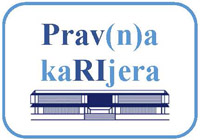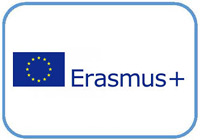Structure of the Study Programme
The Study is organized as a two-year study programme in the duration of four semesters. During the Study, the student attends nine compulsory courses, four of them in the first semester, four in the second semester, two in the third semester and one in the fourth semester. With these courses, students acquire specific knowledge, skills and competences related to the organization and functioning of state administration, local and regional governments and public servicesin general, economics and financing of public administration, public administration procedures, adoption of individual and general decisions in public administration, rights, obligations and responsibilities arising from the labour relations in public administration and the application of the Administrative law of the European Union to the legal situation created in the domestic legal system. This knowledge builds on the knowledge, skills and competences acquired at the Professional Administrative Study, and forms the basis for the acquisition of specific knowledge, skills and competences required for work in special administrative areas. Students write one a term paper in the second and third semester, proving thereby their ability to deeply analyse a given topic, and/or to independently solve a practical assignment.
In the thirdsemester, students enrol in two and in the fourth semester in one elective course which directs them toward the administrative area in which they work or for which they show the greatest interest. The students choose the elective courses based on their own decision in consultation with their mentor. As one elective course, with the consent of the Head of the Specialist Graduate Study in Public Administration, the student can choose to attend one of the courses from the list of elective courses from the Integrated Undergraduate and Graduate Study in Law at the Faculty of Law in Rijeka or from another degree programme at the University of Rijeka or another University, if the course carries six or more ECTS credits, and if it is determined that it will help the student to more specifically focus the knowledge, skills and competences required for work in public administration.
The timetablefor part-time students will be adjusted to the employed students, and each course will be conducted through concentrated classes between two to four weeks. During the lectures at the full-time and part-time Study, novelties in legislation and practices will be systematically covered, and particular emphasis will be placed on the methods of administrative procedures, the analysis of practical cases, discussion and teamwork. In order to organize classes from each elective course, it is necessary that at least five students choose the course. Otherwise, the course teacher will conduct mentoring sessions with the students. The student is required to regularly attend classes, actively participate and master the study material. Homework, presentations of papers, use of the Internet and other media, etc. are provided as possible forms of participation in classes. Upon the completion of the course the students have to pass a written, oral or writtenor oral exam.
By enrolling in the fourth semester, the student chooses the topic and mentor for his final thesis, which can be from the field of the compulsory courses and elective courses that the student attended during the Study. Students must pass all compulsory and chosen elective courses from the study programme. The total number of ECTS credits achieved by passing the exam is 102. The programme is completed upon the submission and defence of the final thesis, which carries additional 18 ECTS credits. Thereby the student achieves a total of 120 ECTS credits. The pace of the Study and student obligations are prescribed by the University of Rijeka Regulations on Studies, and the Regulations on Studies of the Faculty of Law in Rijeka. The students will achieve the necessary ECTS credits by passing exams in compulsory and elective courses and by submitting and defending of the final thesis.
















